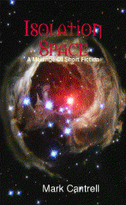Take your fingers out
of the dyke!
As the nascent Indie publishing scene develops, its greatest
challenge is not just to win the battle for respectability, writes Mark
Cantrell – but also to avoid becoming a pale imitation of the big publishing
corporates
YEARS ago, I wrote that the “floodgates should be opened to
a deluge of talent” and now it appears to be happening, but not in the way I ever envisaged. It’s kind of scary, but exciting too, though there are no
guarantees that the seeds of a revitalised literary culture will flourish under
this irrigation of talent.
My original words were part of an impassioned plea to the
print publishing industry, then as now dominated by a handful of large
corporates, to embrace greater diversity and turn aside from a path that leads
to a bland mono-culture based on ‘blockbusters’, ‘big name’ celebs and
ever-more of the seen-it-all-before. Of course, the industry never paid a blind
bit of notice; what, listen to an unknown author scribbling far beyond the
fringes of the literary map? That’ll be the day.
Well, that was then, this is now. Those floodgates are
finally open and talent is gushing through, but the way wasn’t opened by the
big publishers – if anything they’re trying to close it again – rather it was
opened by the authors themselves.
Authors, frustrated by the indifference of Big Publishing,
have long taken a leap of faith and ventured into publishing their own works,
but thanks to a window of opportunity created by the emergence of online and
mobile digital technology, more authors than ever before are turning away from
the established practices of bygone years to take their works to market for
themselves.
Big publishing has sought to tighten its grip, of course;
the industry has sandbagged the floodgates, and tried to tame the digital beast
to its own paddocks, but it has proved unable to stop the dykes springing a
leak as new technology – combined with a frustrated literary spirit – has begun
to undermine the levees. For all this, the battle isn’t so much between the
underdog authors and big publishing – David and Goliath, as it were – but
between big corporates competing for the hearts and minds and, yes, the wallets
of consumers. The conflict is about rather more than market share and profit
margins, however, especially form ‘Big Tech’s’ point of view. Why else would
they be stepping into Big Publishing’s territory? Essentially, it’s about
dominating the architecture through which human cultural expression and
perception is rendered possible. If the printing press dominated in the old
days, now it’s ‘Big Tech’s’ turn to dominate the means of cultural intercourse.
On the one side of this battle to share our hearts and
minds, there is Big Publishing, long-embraced in a struggle with Big Retail,
and embroiled in a struggle with the new emerging superpower – a nexus of
Google, Amazon, Apple, and other ‘game-changing’ technologists. Between them,
these bold newcomers are smashing the ‘tired old Soviets’ of yesteryear to
usher us into a new age of personal freedom and untold consumer choice. The
hype they offer is seductive, the technological possibilities alluring, the
fact is they are every bit as Soviet in their totalitarian impulse as those
they aim to supplant.
Caught in the middle of all this, authors and small
publishers – long reliant on the largesse of big publishing and big retail, but
increasingly cast away into Siberian exile – have found a brief window of
opportunity with the rise of the new technology. The gap created for authors
and readers to create their own space may be brief, becoming firmly shuttered
as the contending sides play out their bitter struggle, or it may be that
authors manage to carve out a space and hold it, but either way they must not
take the matters for granted.
Big Tech is no more the friend of literary culture (in its
widest sense) than is Big Publishing, so the emergent Indie scene needs to move
fast but wary to seize a toehold on the future.
For now the gates are of opportunity are open and the
emerging world of the Indie author is still in its infancy, but there is little
reason why it cannot enjoy a vibrant future as it develops and begins to find
its feet. Of course, it remains a little rough around the edges; it’s early
days yet. Inevitably, there’s a learning curve involved. The Indie scene is the
sum of its parts and some of those individual authors face a steeper curve than
others, but they all feed into the wider curve that the scene itself faces, as
it strives to fill the vacuum left by traditional publishing.
The emergence of a vibrant Indie publishing scene isn’t just
about the multitude of authors learning the craft of writing – and now
publishing – it also represents something of a culture shift too. For now, the
traditional publishing industry maintains the standards, ideologically
speaking. The traditional machinery and hierarchy of publishing has held sway
for a long time, as much over the writing process as publishing, so it is
inevitable that the Indie scene will remain steeped in this culture – this
world view – as it emerges to define its own existence and legitimacy.
For years, decades, generations even, the literary world has
been shaped by the precepts of the conventional publishing industry: its
concepts, its norms, its expectations and its prejudices. To navigate the
successive layers of gate-keepers, authors have faced little choice but to
conform to the demands of the culture-keepers, and in turn this labyrinth has
moulded the readership into a shape that broadly fits their needs.
As readers and writers alike, our perceptions, our
expectations, and our understanding of what constitutes a valid form of
literary expression, has been shaped by the great and the good of the
established publishing world. Publishers, agents, the media network of journals
and newspapers, the highbrow ranks of critics and reviewers, distribution
channels and bookstores, have all for generations shaped the word-view (sic) of
readers and writers alike.
Until now. The rise of the Indies challenges this staid
agenda and opens up the way for new voices, greater variety of styles, the
emergence of new conventions and approaches to the world of words, but Indies
too emerge shaped by the precepts and prejudices, the norms and conventions, of
what has gone before; they too need space to breathe and to slough off the
worst of the old while embracing and revivifying the best.
In a sense, this places Indies in a position to grease the
rusted wheels of literary motion and get them turning again, but it will take
time, effort and a good deal of mistakes along the way, before it identifies
the most appropriate wheels to lubricate and set turning and those best left to
the solidity of obsolescence.
The capital intensity of traditional publishing has left the
written word to the dead hands of a tired ‘literary priesthood’ left naked now
by the rise of digital technologies that have taken the dissemination of the
literary spirit out of their sepulchres – but let’s not mistake this for a
technological argument.
Print versus digital is a distraction. What really matters
is the relationship we have to the words, whether as writers, as readers, or as
mediators between the two. Humanity has always been a story-telling animal, and
the means by which these narratives are constructed has been constrained,
contained, directed, or unleashed by successive shifts, not just in technology
and medium, but social and economic shifts too.
Technology isn’t quite neutral, because we – the human
animal – are far from neutral, and that has shown itself with the dominance of
print publishing technology. The machinery itself long became subsumed into the
flesh-and-blood ‘machines’ of corporate publishing. Print technology is far
from obsolete, and could have a constructive future in symbiosis with digital,
but the big corporate ‘machines’ came to jealously hoard the world of print
into one in keeping with its own agenda. We might almost think of them as
Orwell’s ‘fiction writing machines’ as in 1984’s Ministry of Truth, but that’s
another story.
Digital offers authors the opportunity to reclaim their
balls (or ovaries) – and neuter the publishing machine. Once free of the
fetters, where we take ourselves in this brave new world of Indie publishing is
up to us; the world is ours for the making, pretty much as it was for the
scribblers of the print age, before the corporate machines embalmed them.
The Age of Digital can be a liberating time for readers and
writers alike, but if we don’t take care then the machinery will enslave us,
turning us into a scaled-down facsimile of the corporates that first stifled
print. So let’s not go down that route – take our fingers out of the dyke and
keep the talent gushing.
Mark Cantrell,
Stoke-on-Trent,
21 September 2011
Copyright © September 2011. All Rights Reserved.
Category: COMMENT



























0 comments:
Post a Comment